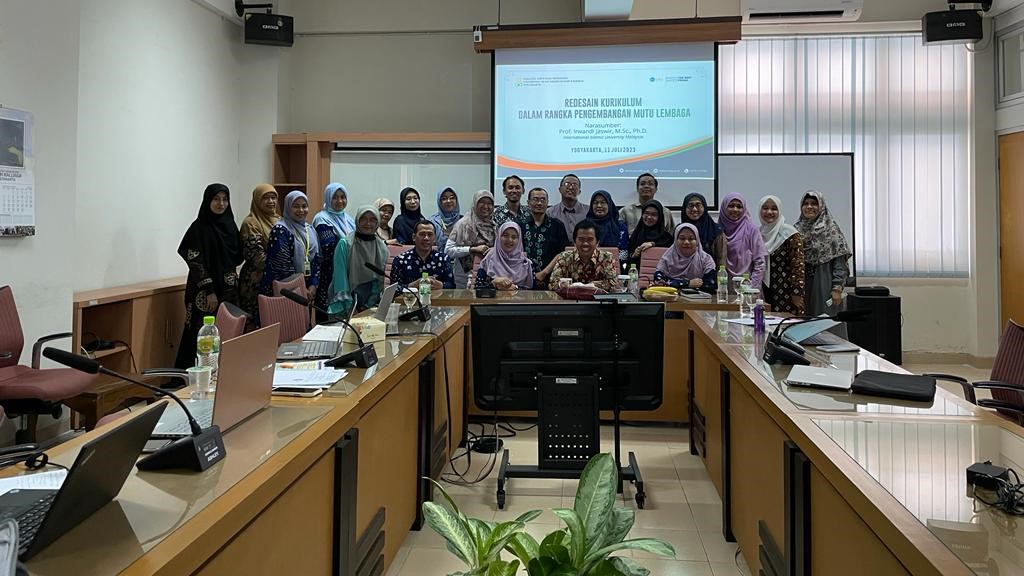Prof. Irwandi Jaswir from IIUM Shares Insights on Curriculum Development at Faculty of Science and Technology

Prof. Irwandi Jaswir from IIUM Shares Insights on Curriculum Development at Faculty of Science and Technology
Yogyakarta, July 11, 2023 - The Faculty of Science and Technology convened for an illuminating session on curriculum redesign, featuring distinguished speaker Prof. Irwandi Jaswir, M.Sc., Ph.D. from the International Islamic University Malaysia (IIUM). The event, held at the faculty's meeting room, delved into the transformation of educational frameworks and strategies in the pursuit of cutting-edge advancements.
Prof. Irwandi Jaswir commenced his discourse by highlighting the distinctive features of Malaysia's curriculum, particularly the culmination of basic sciences in the final year of high school. Drawing from IIUM's experience, he underscored the significance of the institution's biomedical science program, established in 2001. He accentuated the orientation of education towards British standards, citing biomedicine as an illustrative example. Prof. Irwandi highlighted that biomedical science has become increasingly relevant, especially in addressing contemporary health issues, while emphasizing its distinction from pharmaceutical studies.
The discussion touched on IIUM's pioneering efforts, such as the development of a PCR-based gold standard for halal authentication. Prof. Irwandi highlighted the meticulous process of final year projects, which span semesters 6 to 8, involving a comprehensive progress report in semester 7 and a thesis assessment in semester 8. The parameterization of research endeavors ensures accurate and timely outcomes, fostering academic excellence.
A key highlight was the pursuit of "Islamic Medical Scientificification," aiming to bridge gaps in the Islamic medical sector. Prof. Irwandi urged the integration of Islamic values into medical sciences and underscored the importance of staying ahead of health trends. He advocated for a distinct curriculum to differentiate from related disciplines, preventing unnecessary overlap.
The interactive Q&A session touched upon the development of halal research and its integration within the undergraduate curriculum. Prof. Irwandi emphasized the importance of authenticating and substituting non-halal ingredients, suggesting innovative methods, such as affordable sensor-based halal identification systems. He stressed the significance of traceability and the economic aspect of halal products.
In his closing statement, Prof. Irwandi highlighted the pivotal role of Science and Technology in shaping the future of the Muslim community. He underscored the impact of research on societal well-being and called for a concerted effort to enhance the lives of the ummah through advancements in scientific knowledge and technology. The session concluded with contemplation on the relevance and impact of research endeavors in the broader context of the Muslim world.




